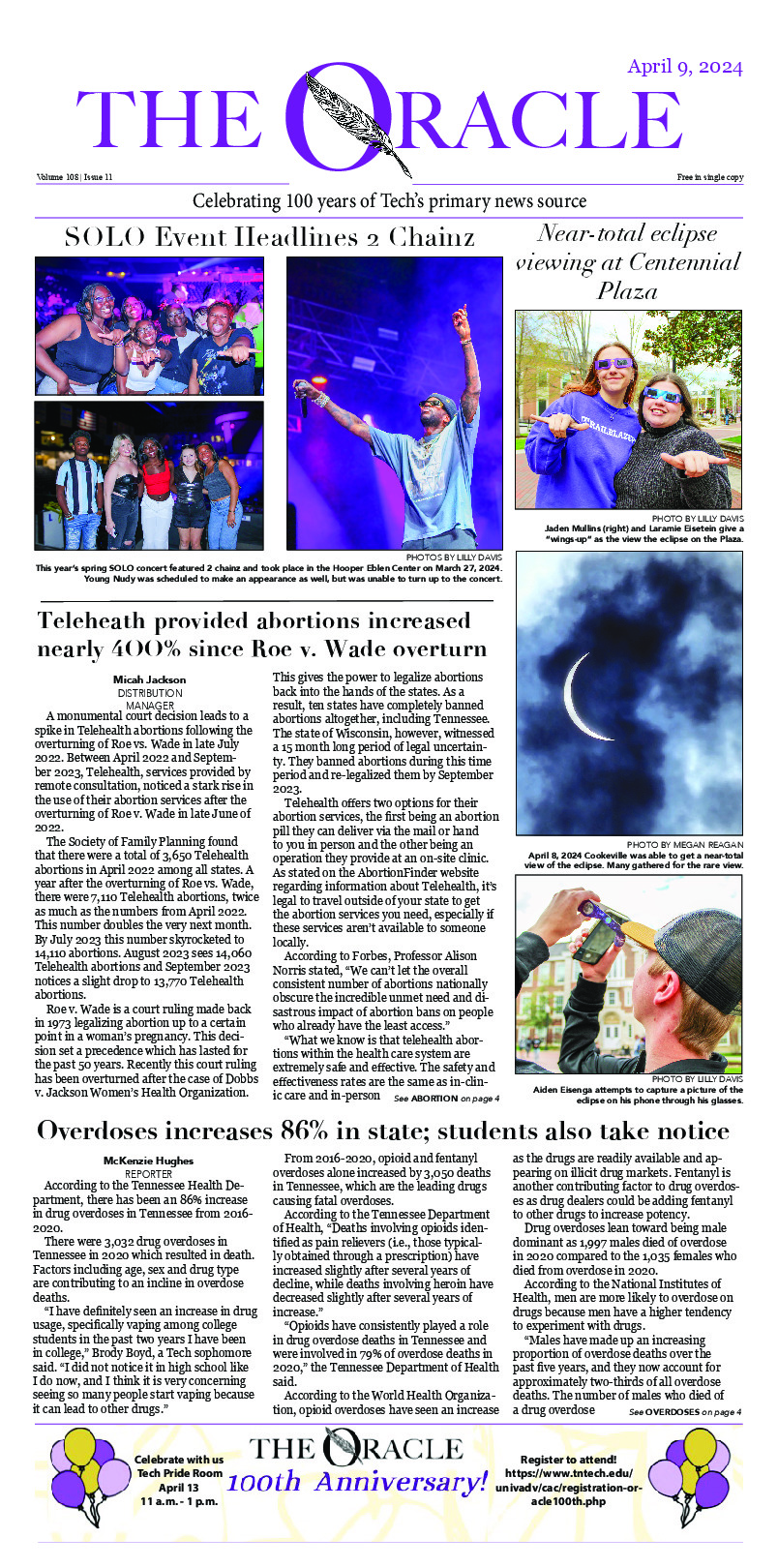U.S. District Court Judge Waverly Crenshaw released a written opinion in December ruling against two Tennessee Tech faculty members who sued the university’s provost for alleged violations of their First and Fourteenth Amendment rights.
The federal lawsuit filed in October 2021 by Dr. Julia Gruber and Andrew Smith alleges retaliation by university officials while the two were exercising their First Amendment rights.
The actions taken against Smith and Gruber came as a result of flyers, allegedly made by Smith, of another Tennessee Tech professor, Andrew Donadio, an assistant professor of nursing and Putnam County commissioner, identifying him as an alleged racist.
Sanctions identified in the complaint include not being allowed to participate in study abroad activities, including faculty-led field trips with students; not being eligible for non-instructional assignments; revocation of a grant awarded to Dr. Gruber; requiring meetings to discuss classroom behavior; undergoing observation in the classroom; and threat of termination.
Smith and Gruber also alleged that they were denied a $1,000 bonus because of the sanctions, and that they are also now ineligible for two years of salary increases.
Crenshaw wrote in his opinion that determining whether or not Gruber and Smith acted as employees or private citizens at the time of the creation and distribution of the flyers is an act of “balancing interests.”
“Even if the term has been watered down over the years, calling a colleague a racist is hardly collegial, and threatening to place him and the group he advises on a ‘list’ is no better. Moreover, like other institutions of higher learning, TTU has rules that need to be followed in order for the institution to fulfill its educational mandate and mission. It certainly is not too much for a university to ask that its faculty members act professionally, engage in ethical conduct, be respectful, and maintain the highest level of integrity,” he said in the court documents.
The university issued a statement about the case, part of which reads, “The two professors … received discipline from the university for ‘targeting a coworker and a small group of students,’ in order to ‘threaten and harass and intimidate them’ and ‘incite others to participate in the harassment. The university deemed such behavior a violation of the University’s Code of Conduct, which requires employees ‘to conduct themselves fairly, honestly, in good faith, and in accordance with the highest ethical and professional standards.’”
Gruber and Smith, unsatisfied with the court’s ruling, said in an interview with the Herald-Citizen that an appeal is likely.
“We tried to do everything to avoid the lawsuit, and tried to settle,” Gruber said. “We wanted to settle. We didn’t ask for any damages.”
Smith said one concern is the sanctions themselves, especially prohibiting the two from working with student organizations in an advisory capacity as well as a research grant taken away from Gruber.
“All these privileges that are a part of our job description were removed from us,” Smith said. “We were also excluded from a raise and a bonus.”
Smith added that the “moral injury” to the community as well their own reputations and integrity is what they wanted the judge to rebuke.
Gruber said that although Tennessee Tech may have won the initial case, it is the community and the university that will continue to suffer from the “chilling actions.”
Their appeal was officially filed Dec. 29.
University officials, regarding the appeal, stated that what was released after Crenshaw’s ruling is the university’s only statement at this time.


